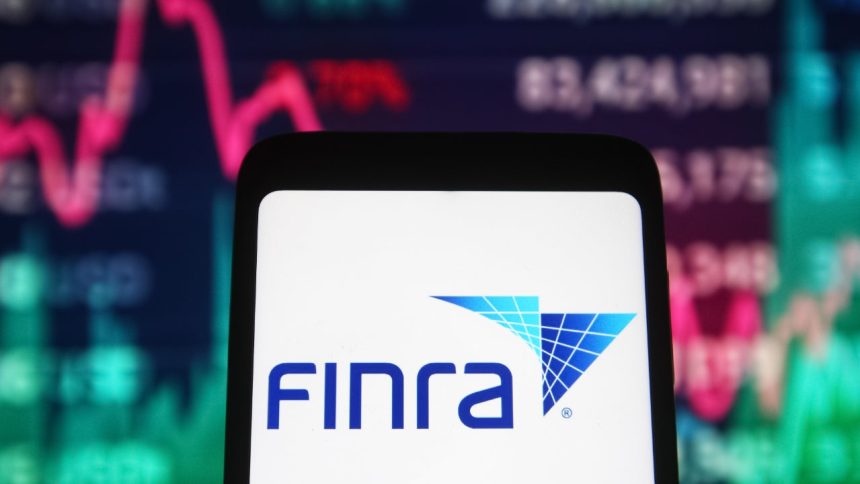Financial Industry Regulatory Authority, or FINRA, is a self-regulatory organization authorized to regulate U.S. stockbrokers and broker-dealer firms. Brokers must be registered with FINRA in order to execute trades on behalf of their clients.
Here are the key details about this organization, including some of its benefits and how it differs from the Securities and Exchange Commission (SEC).
What is the Financial Industry Regulatory Authority (FINRA)?
FINRA is a non-governmental, self-regulatory organization that enforces various rules governing brokers and broker-dealer firms in the United States.
FINRA has enforcement powers over the brokers and firms it regulates. This includes the power to levy fines and sanctions against those who violate its rules. These sanctions can include suspensions and even debarments from the industry in some cases.
FINRA also maintains the BrokerCheck database of brokers and investment and financial advisors. This is a searchable online database that includes information about members’ certifications, education and any enforcement actions that have been taken against them.
FINRA oversees around 3,400 securities firms with about 150,000 branch offices. This includes about 612,000 registered securities professionals as of 2021. FINRA itself has 19 offices across the U.S. with some 3,600 employees.
History of FINRA
FINRA was created in 2007 as a combination of the National Association of Securities Dealers (NASD) and the member enforcement, regulation and arbitration operations of the New York Stock Exchange (NYSE). The creation of FINRA was approved by the SEC.
Benefits and criticisms of FINRA
FINRA offers a number of benefits for investors, though the organization has its critics as well.
Benefits
Benefits associated with FINRA include:
- The regulation and oversight of brokers and firms in one place. FINRA registered brokers must complete annual educational requirements. They can face disciplinary action if they are not in compliance with FINRA’s rules.
- The BrokerCheck database offers a “one stop shop” for consumers looking to check up on brokers, advisors and firms. Violations and sanctions are listed, as well as broker and advisor education levels.
- An avenue to file complaints against brokers or firms. FINRA will investigate the claim and take action as appropriate.
- Educational resources for investors and consumers, including articles and calculators.
- FINRA monitors financial markets, including transactions and orders, on a daily basis to help ensure market integrity for investors.
Criticisms
Along with the positive aspects of FINRA, some criticisms of the organization include.
- As with any self-regulatory organization, FINRA has been criticized for not doing enough to protect investors. Among the vocal critics of FINRA are U.S. Senators Elizabeth Warren of Massachusetts and Tom Cotton of Arkansas.
- There have been a number of repeat offenders among brokers who have committed acts of misconduct.
- Some have criticized FINRA as having an inherent conflict of interest due to its ties to the industry.
Difference between FINRA and the Securities and Exchange Commission
While the SEC and FINRA both play a role in regulating the U.S. financial industry, these roles and the scope of each organization’s powers are different.
The SEC is a governmental agency formed in the midst of the Great Depression as part of the Securities Act of 1933 and the Securities Exchange Act of 1934. The SEC can bring civil cases against offenders and can work with the Justice Department to bring criminal actions as well.
In contrast, FINRA is a non-governmental, self-regulating organization, and its sphere of influence is limited to the brokerage industry. This chart outlines key differences between the two organizations.
| FINRA | SEC | |
|---|---|---|
| Type of organization | Self-regulatory | Governmental entity |
| Focus | Regulation of brokers and firms within the brokerage industry | Regulation of the financial markets, individual securities and broad enforcement of securities laws. |
| Other duties and functions |
Administers BrokerCheck database and offers educational resources to investors. Fields and addresses complaints about FINRA member brokers and firms. Provides an arbitration forum as an alternative to going to court to settle disputes. |
Has the power to take legal action to enforce securities laws. Ensures the accuracy of information regarding publicly traded securities. |
One way the differences have been described is that FINRA deals more with the human aspect of regulation. It regulates individual brokers and brokerage firms. Meanwhile, the SEC can also discipline advisors, brokers and others. But the SEC’s scope extends well beyond this, and it’s in charge of regulating the bulk of the U.S. securities industry and the financial markets.
Bottom line
FINRA is a key player in the financial regulatory space. Brokers and brokerage firms must be FINRA registered. It has a broad range of disciplinary powers, including the power to suspend or expel violators from selling securities. However, unlike the SEC, FINRA does not have the power to bring criminal actions against violators. Also, FINRA’s scope is more limited than that of the SEC.
Read the full article here
















